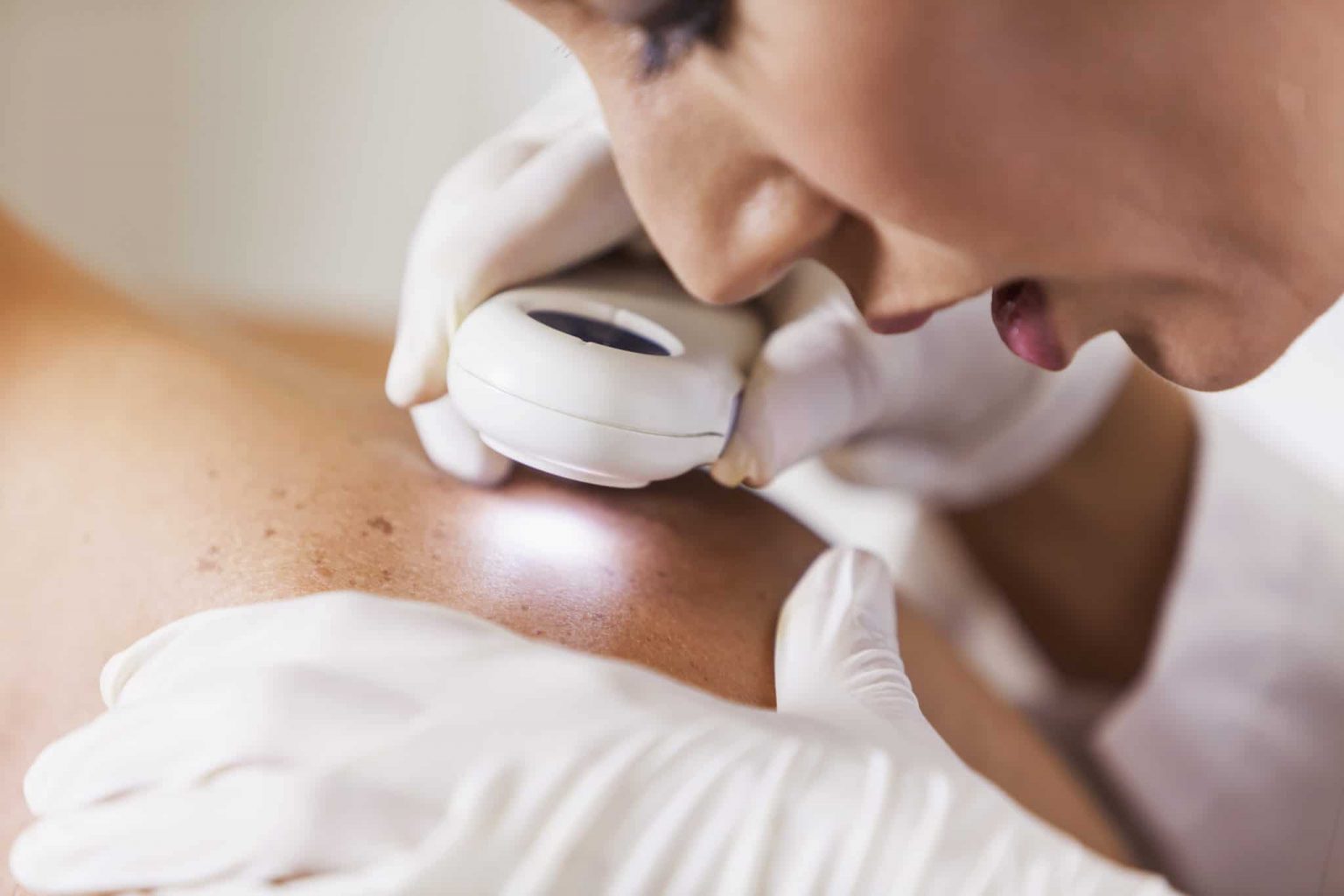What Is Skin Cancer?
Skin cancer is the most common cancer in the United States, with the American Academy of Dermatology estimating that one in five Americans will develop it in their lifetime. Skin cancer is most often the result of ultraviolet radiation from sun exposure.
If you think you may have skin cancer, you probably have many questions and concerns. You aren’t alone. Specialists at Texas ENT Center can help. Our team is available to provide a thorough diagnosis of your symptoms and effective modern treatment options if cancer is determined to be the cause. We’re in this together.

How Do I Know If I Have Skin Cancer?
Skin cancer typically develops in areas that are frequently exposed to the sun, such as the scalp, face, lips, ears, neck, chest, arms, hands and legs. It may appear as a bump, scab, mole or lesion.
Common types of skin cancer include:
- Basal cell carcinoma may appear as a bump, scar-like lesion or a reoccurring bleeding or scabbing score.
- Squamous cell carcinoma may appear as a red nodule or a lesion with a scaly surface.
- Melanoma may appear as a brown spot, abnormal mole or a painful lesion with unusual coloring.
How Do ENTs Treat Skin Cancer?
Treatment will vary based on the size, type and location of your cancer. If the cancer has not spread, it may simply require a biopsy that removes the entirety of the growth. Other cases may require chemotherapy, radiation or a combination of these procedures. Our otolaryngologist will recommend the treatment that will best serve your individual needs, and we’ll be with you through every step.
How Can I Reduce My Risk of Skin Cancer?
The most effective way to prevent skin cancer is to limit exposure to the sun, particularly between 10 a.m. and 4 p.m., which is when ultraviolet light is at its peak. When going out in the sun, use sunscreen with an SPF of 30 or higher and wear hats, long-sleeved shirts and pants. Additionally, visit a medical professional if you notice any changes to your skin.
Don’t Wait to Get Diagnosed
If you’ve noticed unusual changes in your skin, you may be wondering what the next steps are. Our team at Texas ENT Center will provide a complete diagnosis. Identifying your condition is the first step toward treatment, and early identification can help improve treatment success rates.
Call Texas ENT Center at (817) 431-7985 for more information or to schedule an appointment.